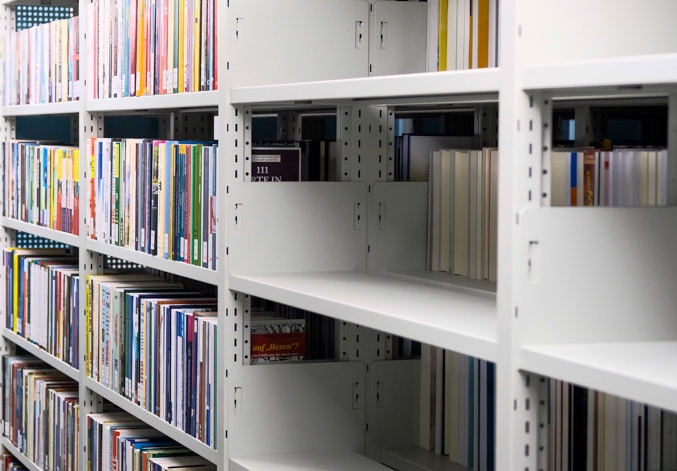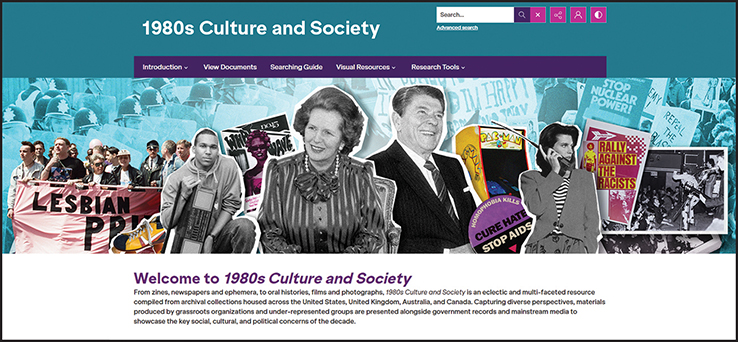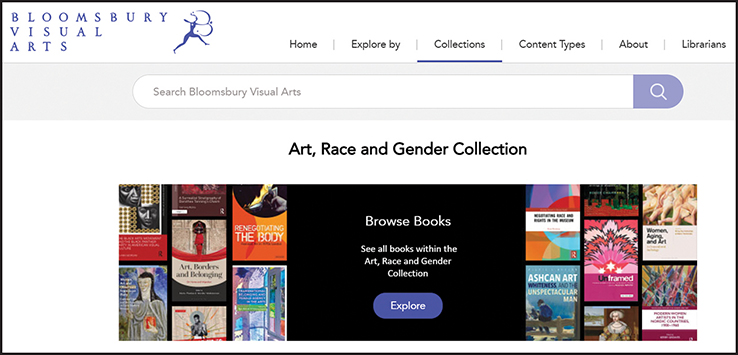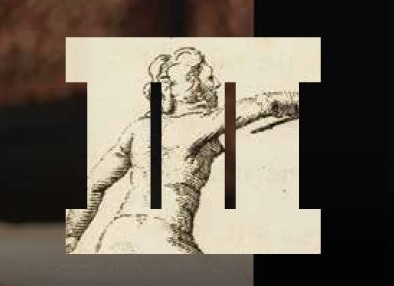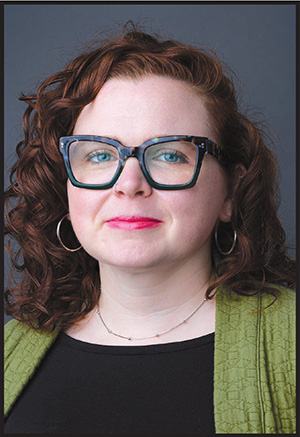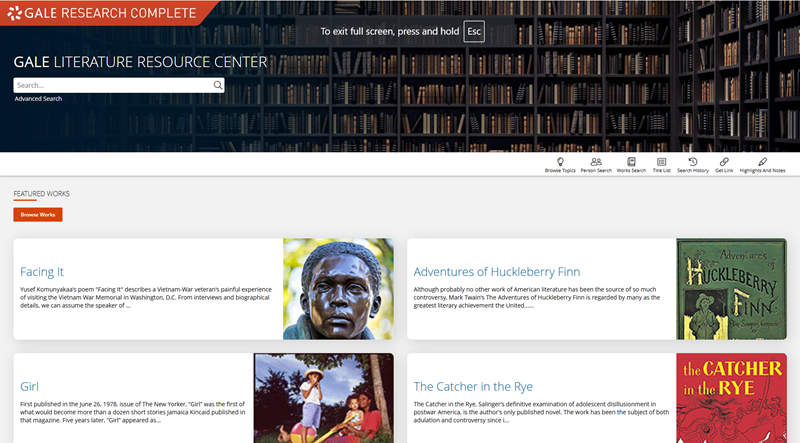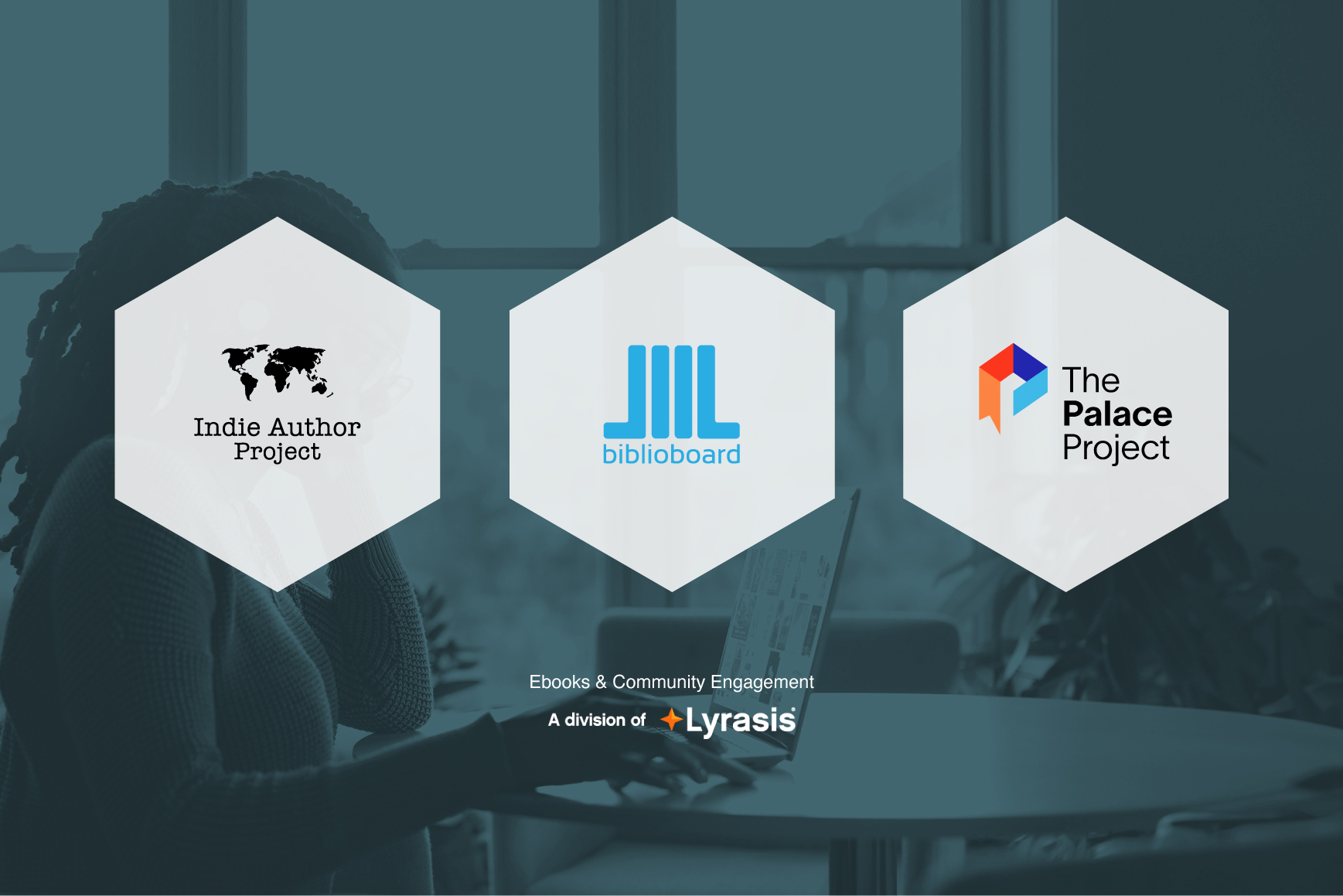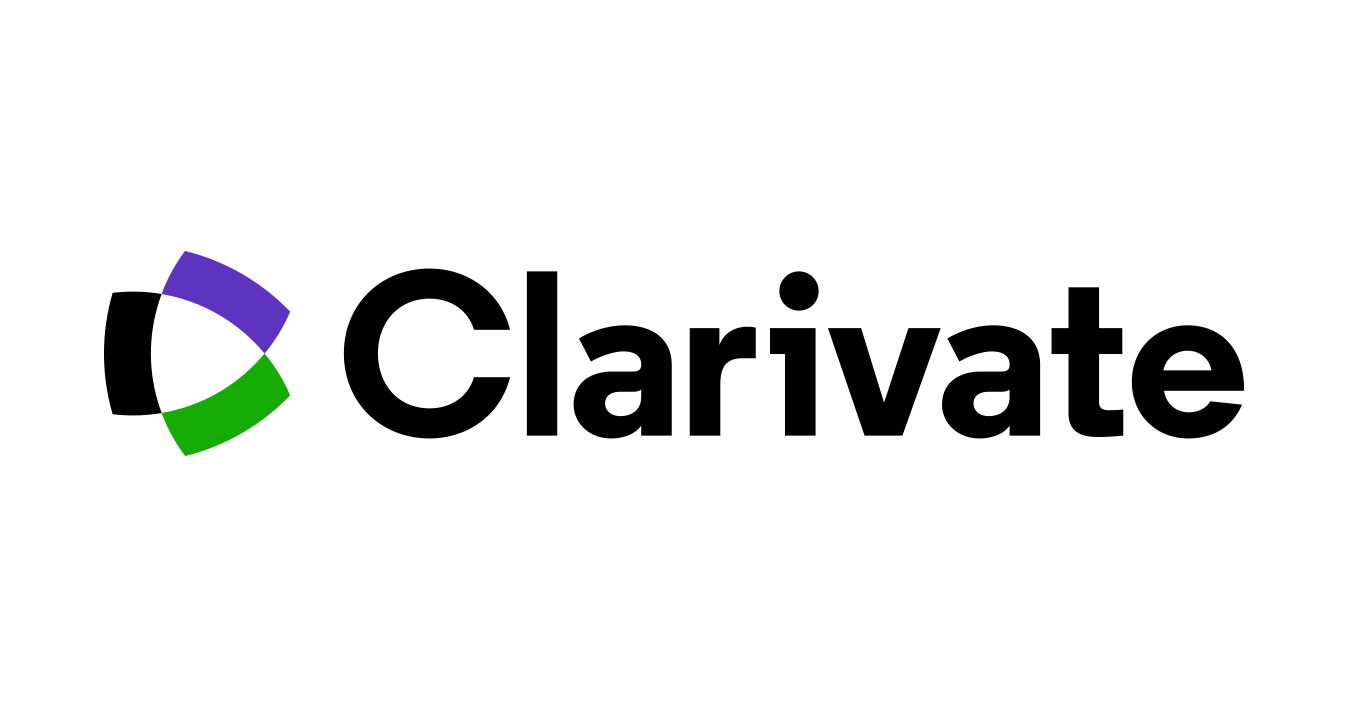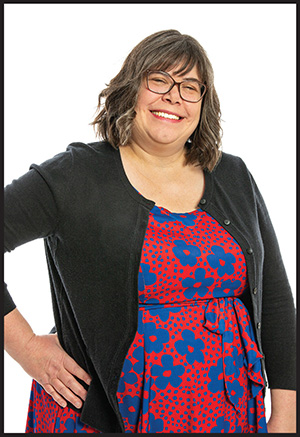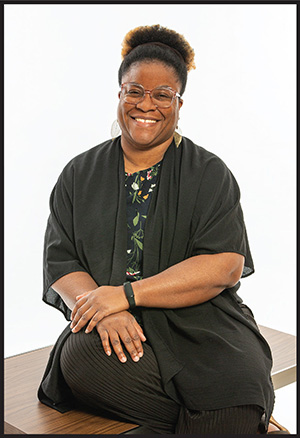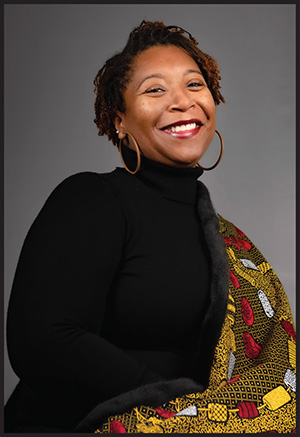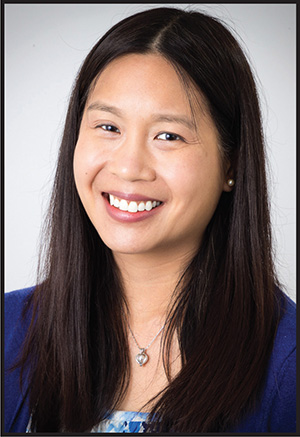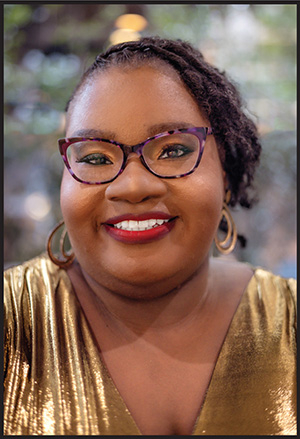Related
In an era of shrinking library budgets, innovative consortial relationships are proving essential for maintaining equitable access to resources. Library leaders share how ILS-agnostic consortial borrowing, strategic partnerships beyond traditional resource sharing, and communicating value to stakeholders can multiply a library's impact despite financial constraints.
While working with the children’s literature collection at the University of Minnesota–Duluth—used by education students in their training—Kayleen Jones decided it needed to better represent the Duluth community and broader society. As she reviewed the collection to identify gaps, she was approached by education faculty interested in collaborating to provide hands-on experience for education students to learn about anti-racist practices.
Mary Ton thinks there’s an ethical place for AI in the arts and humanities. She teaches researchers and students about the benefits and limitations of AI in research and the arts, drawing on her background in machine learning, and has presented on the topic across the state.
Describing himself as “aggressively helpful,” law librarian Kris Turner combines traditional legal research with the evolving generative AI world. “Generative AI technology worries many, creates skepticism in others, and is eagerly embraced by some,” Turner notes. “This wildly disparate level of welcome for GenAI means I especially need to show I am open to questions, challenges, and counterarguments.”
Brittani Sterling had planned on going into social work, but when she realized she could help people through librarianship, she chose that path and never looked back.
As Outreach and Information Services Librarian for Cornell University Library and the Cornell Prison Education Program (CPEP), Maddie Reynolds navigates significant barriers to information provision. Her role, working at Auburn Correctional Facility, Cayuga Correctional Facility, and Five Points Correctional Facility, NY, was created by Cornell, as CPEP plans to begin offering bachelor’s degrees beginning in fall 2026.
Until Janet Hyunju Clarke, Associate Dean of Research and Learning at Stony Brook University Libraries, got involved, the Asian American and Pacific Islander (AAPI) students who make up approximately 40 percent of the school’s population had never had a campus club that was open to anyone (as opposed to only students) or celebration related to their heritage. “We wanted to do something at a campus-wide level to show students that their history and experiences matter,” says Clarke.
As the archivist for San Diego’s Comic Arts Fest, Pamela Jackson curates 100,000 comics and ephemera. That alone would distinguish her, but bigger impact flows from her work at San Diego State University (SDSU). Along with SDSU history professor Elizabeth Pollard, Jackson developed a comics-based curriculum that has students more engaged than ever.
While viewed as the academic backbone of the two universities it serves, the Loyola Notre Dame Library “struggled like so many other libraries to bring patrons back into the building following the pandemic,” says Mallory Wareham. “We also faced the ever-present challenge of showing our patrons that libraries are far more than just a quiet study space.”
After graduating from library school, Alejandro Marquez served in the Peace Corps in El Salvador, and the experience still affects his work today. It “really helped broaden my horizons to seeing different cultures and how different people work,” he says, “being empathetic and thinking about the different people out there who need library services and the best way to connect with them.”
By age 12, Billy Tringali was hooked on manga. “Reading something that came from all the way around the world was magical,” he says. “The stories were so different.” His hometown library in Kingston, MA, where he volunteered, had none, so he donated his collection. “It was incredible to see so many kids reading books that I put on the shelf,” he recalls.
Nicola Andrews and Sandy Littletree, both passionate advocates for Indigenous librarians and librarianship, are coauthors (with 2022 LJ Mover & Shaker Jesse Loyer) of “Information as a Relation: Defining Indigenous Information Literacy.” According to Littletree, the collaboration came from “this desire to talk about what Indigenous librarians are experiencing on the ground and the different practices and ways that Indigenous librarians, particularly in academia, have been drawing on their ways of knowing in their practice and teaching.”
Did you know that over 60%* of libraries are actively planning to integrate artificial intelligence (AI) into their services? A vital aspect of this change is understanding how AI can enhance library services. Advanced applications such as personalized recommendations for users or predictive models for space planning are already delivering impressive outcomes.
Ex Libris has introduced a redesigned user experience in Alma, focused on enhancing efficiency, accessibility, and usability. Developed in close collaboration with the library community, the update reflects a deep commitment to a user-centered design.
Matt Huculak was named a 2024 Library Journal Mover & Shaker for his work with researchers, artists, Holocaust survivors, and educators to help develop a graphic book about the Holocaust. We recently spoke with Huculak, who is now director of KULA: Library Futures Academy at the University of Victoria, about the vital importance and relevance of that work and how it came about.
Gale recently debuted new personalization and visualization features for its Digital Scholar Lab—a cloud-based research environment designed to facilitate the access and analysis of Gale primary source materials and a researcher’s local humanities and social sciences collections.
While those in favor of book bans believe children should be protected from content perceived as inappropriate or abusive, those opposed worry about the societal consequences of censoring information and ideas, the infringement of First Amendment rights, and the negative impacts on authors and publishers. Researchers Uttara M. Ananthakrishnan, Naveen Basavaraj, Sabari Rajan Karmegam, Ananya Sen, and Michael D. Smith set out to examine how bans at the district level affect consumption at the national level.
This AM resource provides a variety of information originating from an assortment of formats that will surely satisfy anyone interested in 1980s culture and society. Universities and colleges alike will want to consider adding this helpful targeted resource, as most people look back on the decade with both fondness and disappointment.
BVA’s Art, Race and Gender Collection provides access to a niche selection of monographs with an intersectional approach to art studies. A valuable resource for institutions supporting research and scholarship in the areas of art, art history, women’s and gender studies, and visual culture.
University presses publish valuable, peer-reviewed scholarly work and thought-provoking content that advances our understanding of the world. In today’s “post-truth” media environment, where reliable, well-researched sources exist alongside pseudoscience and political screeds, this type of authoritative information is more valuable than ever.
For more than 20 years, Gale’s Eighteenth Century Collections Online (ECCO)—the largest collection ever assembled of English-language books, pamphlets, and periodicals published in the 18th century—has served as an invaluable resource for students and scholars worldwide. Now, this resource is being further enhanced with 1.7 million new pages of content.
This year, we cast both a look back to see what can be learned from the past, and a look forward to consider what might be heading our way in the coming years.
As the needs of employers are constantly changing, job seekers and current professionals need upskilling resources that can keep pace with these rapid changes. With Gale Presents: Udemy, libraries can provide access to thousands of high-quality, on-demand online courses for in cutting-edge skills related to business, technology, leadership, and personal development.
Allison Jennings-Roche was named a 2024 Library Journal Mover & Shaker for her work at the University of Maryland helping educate students, faculty, and librarians who work with information systems. LJ recently spoke with Jennings-Roche, who is now the associate director of digital initiatives and collections (and a PhD candidate) at the University of Baltimore’s RLB Library, about why it’s vital to understand information, where it comes from, and how it affects everyone.
To help coordinate and support the work of saving government data, ensure that individual efforts didn’t duplicate one another, and provide a secure, accessible repository for archived material, a group of concerned librarians created the Data Rescue Project (DRP). A “clearinghouse” for data preservation efforts, DRP builds on efforts that began during Trump’s first term. LJ spoke with DRP organizer Lynda Kellam about the project and to learn more about how to get involved.
Looking to improve engagement and provide historical context in her Literature 155 course last fall, Professor Alisa Allkins of Harold Washington College used Gale Literature Resource Center to introduce her students to diverse primary sources connected to the book Passing by Nella Larsen. And she discovered a powerful strategy to counter AI-generated work.
In January, the HBCU Library Alliance announced the award of a $1,000,000 grant from the John D. and Catherine T. MacArthur Foundation to support its multipart program “Empowering HBCU Libraries with Civil Rights Preservation, Digital Innovation, and Transformative Professional Development.”
Last year, John Wilkin shared his essay Lyrasis in a Landscape of Radical Interdependence where he discussed the interdependence of libraries, archives and museums, and how Lyrasis is uniquely positioned to provide the connective tissue between them.
Scott Summers, assistant director of the Media and Education Technology Resource Center (METRC) at North Carolina State University, was named a 2024 Library Journal Mover & Shaker for his work developing a program to help new teachers understand the growing problem of book censorship in school libraries, and how to work with librarians against it. We recently spoke with Summers about why he developed the program and what it teaches.
AM has once again produced an impressive archive of important primary documents that give users a firsthand glimpse into the perspectives and mindsets of an underrepresented but essential group in UK and Irish history. The accounts of daily life and the roles and responsibilities of women since 1600 are riveting to read and hear.
This unique and expansive resource offers exciting opportunities for educators seeking to facilitate discussions centered on race and racism, identity, power, and culture. Materials are curated and presented by exceptional scholars and teachers who offer nuanced understandings and thoughtful writings across a range of topics.
Included with any subscription to or purchase of content on Oxford Academic, our AI Discovery Assistant helps to make your discovery of scholarship quicker, whatever your specialism, as it identifies the ten pieces of content most relevant to your research.
Most research articles in journals have a standard structure with sections entitled “Introduction,” “Methods,” “Results,” and “Discussion.” Each has a clear remit except for the Discussion, which, if you’re a less experienced writer, may seem a hopelessly vague description. The occasional alternative of “Conclusion” or “General Discussion” isn’t much better.
On March 5, Clarivate issued an update to its February 18 announcement of a new subscription-based content access strategy for ebooks and digital collections, acknowledging the need for community consultation and a new transition timeline. Because customers expressed that “the original communicated dates for the last orders would pose a considerable challenge,” the open letter stated, Clarivate will extend the ability to make perpetual purchases of print and ebooks on all platforms—including Ebook Central, OASIS, Rialto, and GOBI—through June 30, 2026.
The Harvard Law School Library Innovation Lab (LIL) has created a data vault to download, authenticate, and provide access to copies of public government data that may be in danger of disappearing. The project will collect major portions of the datasets tracked by data.gov, federal GitHub depositories, and PubMed—information of value for researchers, scholars, and policymakers. When the public-facing site launched on February 6, the data vault had collected metadata and primary contents for more than 300,000 datasets available on data.gov.
We are pleased to be contributing to the advancement of medicine and healthcare by publishing open access journal Research Connections from early 2025. Research Connections will support the scientific community by publishing strong foundational research and important contributions to evidence-based medicine practice.
Established in 2013 in Corvallis, OR, the Oregon Hops and Brewing Archive at Oregon State University aims to collect and preserve books, periodicals, ephemera, and artifacts about brewing and hops farming in the Pacific Northwest. The university has a department dedicated to food science and technology under its College of Agricultural Sciences, as well as its own Research Brewery, and since 1995 has offered one of the few Fermentation Science programs in the country. But it would take a department merger and a wedding to spark the creation of the archive.
Sara Ring, continuing education librarian at Minitex (a joint program of the Minnesota Office of Higher Education and the University of Minnesota), was named a 2024 Library Journal Mover & Shaker for her work helping develop 23 Linked Data Things and the Minitex Wikimedia Project. LJ recently spoke with Ring about what it took to build those projects and her plans for the future.
Artificial intelligence is not a solution—it’s a tech tool that is only useful when it actually solves problems for learners and librarians. AI is everywhere you look today, from the big three search engines to the local library.
Clarivate, the parent company of ProQuest and its Ebook Central platform, on February 18 announced the launch of a new subscription-based content access strategy for ebooks and digital collections. As part of the strategy, Clarivate will be phasing out the option for libraries to purchase one-time perpetual licenses for its ebooks and digital collections in 2025, including single-title purchases, upgrades, and evidence-based and demand-driven acquisitions.
This standout archive is well-organized, easy to use, and feature-laden, highlighting primary documents that are essential for an understanding of the activities and events related to global human rights, social change, international relations, and political events of the last decades of the 20th century. An indispensable resource for students of the global human rights movement.
One of the good things about spending more time indoors during the winter months is having more opportunities to spend an evening with a compelling book. If you are stuck on what to read this winter, we have put together a collection of ten riveting page-turners!
What is worse, these days celebrating the book might also be resented by those who owe allegiance to futuristic forms of digital reading or what one can call visual orality—the use of mixed media, rooted in TV and film technologies, to tell stories and convey information.
Preprints, or initial versions of scientific reports that researchers share before the formal peer review and publication process have been completed, have started to become more popular within academic circles—and now the Gates Foundation has changed its Open Access policy to require grant-funded research papers to appear as preprints before publication.
You may have wondered why so many publishers are announcing pilot projects on open access (OA) publishing. The theme of Open Access Week (October 21-27), Community over Commercialization, hints at the reason: publishers want to engage with the community’s request for new models but can’t afford to make a loss on OA (and shouldn’t be expected to).
Nardia Cumberbatch, librarian at Florida’s Valencia College, was named a 2024 Library Journal Mover & Shaker for her work in helping the college achieve the Sustainable Library Certification Program, the second academic library in the country and the first library in Florida to have done so. We recently spoke with Cumberbatch about what it took to earn that certification and its resulting impact.
Chartered by President Abraham Lincoln in 1864, Gallaudet University, in Washington, DC, holds the distinction of being the only bilingual university for Deaf, Hard of Hearing, and other Deaf Disabled students in the world. Consequently, it has the world’s largest archives of materials related to deaf and hard-of-hearing communities, with a mission to preserve “the institutional memory of the University and historic material from the global Deaf community,” according to the Gallaudet website.
LitBase is a quality resource that provides access to critical, well-respected literary resources. The breadth of the content is outstanding, making this well worth considering for programs supporting undergraduate literary studies.
This groundbreaking work allows users to investigate and consider the intricate relationships between artists, institutions, galleries, and collectors. A unique and thoughtfully curated collection that is highly recommended for researchers and students in the humanities.
Aisha Johnson, associate dean for academic affairs and outreach at the Georgia Institute of Technology Libraries, was named a 2024 Library Journal Mover & Shaker for her work on Sustainable Leadership as a Solution for Representation and Inclusion in LIS: A Bibliography and Toolkit. We recently spoke with Johnson for insights and updates on her work.
Publishing in a journal that isn’t reputable can reduce the credibility of research, hinder one’s career, and lessen the impact of research findings. When choosing a journal, researchers should talk with their colleagues, supervisors, and librarians to find out which publications they read regularly and which they perceive as the most highly respected in their field.
This unique Gale collection offers valuable materials about the perception of disability in the late 19th and 20th centuries.
This database includes intuitive tools that help students learn how to approach literary works, make assessments, and formulate arguments.
Shamella Cromartie, associate dean of organizational performance and administration at Clemson University Libraries, was named a 2024 Library Journal Mover & Shaker for her work to expand outreach, membership, and support for Black librarians in South Carolina. We recently spoke with Cromartie to learn more about these projects.
Library vendors have announced several new products, partnerships, and programs during the past two months. Here’s a sampling of recent news.
When thinking of how to best sum up this year’s Charleston Conference, held November 11–15 and available to view online December 9–13 (along with exclusive “online only” sessions), one word sprung to mind: collaboration. As a first-time attendee from a publishing technology background, it was wonderful to see so many professionals from the worlds of libraries and publishing come together to tackle challenges that are affecting the entire information industry.
Searching to update collections and fill information gaps? Consider these 580+ new and forthcoming print titles. Also included are updated lists of reference fun reads.
Support research and scholarship with these 80+ new and forthcoming databases and online products, spanning specialized topics and general reference.
Scheduled to be updated in late 2024/through 2025, consider these 140+ databases and online products. Arranged by category, these resources range from titles on the arts to those addressing technology.
Salem Press, 75 years old this year, offers multivolume resources that meet the needs of many readers. LJ talked to Leslie Mackenzie, Salem’s president and publisher, about Salem’s vision for reference and its approach to making its materials accessible to all.
Coherent Digital provides students, educators, policymakers, and librarians with wide-ranging resources for research, learning, and discussion. LJ talked with Eileen Lawrence, Coherent’s cofounder and senior adviser, to discuss Coherent’s materials, selection process, and commitment to finding, preserving, and making endangered content accessible.
Bibliodiversity, state-of-the-art content, and hand-picked works supporting curricula make academic ebook platforms key parts of the collection development ecosystem.
From the research services of a presidential center to a large public library system and an academic music archive, explore three libraries around the country and the resources they rely upon.
Part two of Gale's Refugees, Relief, and Resettlement archive excels as a resource supporting research in history, political science, sociology, diaspora studies, and migration and refugee studies.
BBC Monitoring provides exceptional primary documents about political, social, military, cultural events, and intelligence gathering from the start of World War II to the early 21st century.
Academics have a shared goal of making their work highly accessible for a worldwide audience—and they agree that F1000Research, which is part of Taylor & Francis and supports researchers in all subject areas, is an effective platform for achieving this goal.
Open-Access publishing advances global scholarship by making research results more widely accessible to anyone with internet access. However, publishers of Open Access journals have struggled to find a financial model that works well for all parties. Now, a new model from PeerJ is rethinking that approach to remove barriers to choosing Open-Access.
This comprehensive guide explores how leading libraries worldwide leverage technology to enhance student engagement, streamline operations, and support academic excellence in the library. These libraries, large and small, are prepped to handle and embrace innovations without losing sight of their core mission. Download the whitepaper
Libraries continue to emerge from the pandemic, with spaces designed to promote social interaction along with quiet study—places that work for everyone.
The data for new academic library buildings and renovations featured in LJ's Year in Architecture 2024.
As Lorcan Dempsey, formerly with OCLC, observed in portal: Libraries and the Academy (2008), “discovery happens elsewhere”—that is, people are using internet search engines, recommendations from social media, or emails from friends and colleagues to discover content. Search can be a powerful tool, provided you know what you are looking for. Yet there are significant problems associated with the search process.
On October 24, the Association of College and Research Libraries announced the publication of its 2024 report for the Project Outcome for Academic Libraries (POAL) toolkit. Data in the report offers a snapshot of POAL’s use and impact in FY24, from September 1, 2023, to August 31 of this year. The report is available as a free download from the Project Outcome for Academic Libraries website.
An excellent resource for those beginning their journey in education or users conducting upper-level searches, this database is highly recommended for any institution with undergraduate or graduate education programs.
As with the previous modules in the series, this collection of primary resources is exceptional, with unique content and user-friendly features. It is an excellent resource for researchers of gender and women’s studies, LGBTQIA+ studies, cultural studies, and social history. Moreover, it expertly expands upon the five earlier collections of the archives and pairs well with other Gale primary resources.
Tarida Anantachai, director of inclusion and talent management for North Carolina State University Libraries, was named a 2024 Library Journal Mover & Shaker for her work rethinking how to approach recruitment and hiring through a more inclusive, diversity-focused approach. LJ recently spoke with Anantachai to learn more about her work in this area.
In an effort to minimize student boredom while learning library information, Jacksonville State University (JSU) librarians implemented gamification―introducing game mechanics into non-game environments―which studies have shown can increase engagement and motivation, and in turn, improve learning across age groups and settings. JSU librarians Karlie Loren Johnson and Kimberly Westbrooks analyzed their results in “Quelling the Boredom with Alternative Instruction: Augmented Reality, Escape Kits, and Scavenger Hunts.”
Putting off adoption of new technologies puts libraries at risk of falling behind in serving their users effectively. For libraries tackling new initiatives, the ability to manage change is crucial. We spoke with several library leaders to learn how they reduce organizational stress and navigate change at both the organizational and individual levels.
Nicollette Davis, assistant librarian for kinesiology, social work, and health sciences at the Louisiana State University library system, was named a 2024 Library Journal Mover & Shaker for her work advocating for BIPOC people, both in the library system and in the community. We recently spoke with Davis to learn more about her projects.
The Exact Editions Literature Collection is an attractive option for users who want easy and mobile access to a curated collection of popular literary journals and magazines.
The Gale Peterson’s Test and Career Prep database is an outstanding resource that provides a plethora of tools and tests to help learners prepare for exams and career challenges.
On August 13, a New College of Florida student posted images to social media showing a dumpster full of books situated outside the campus library. As the story and images went viral, New College issued a statement that the library’s weeding project was separate from the removal of items from the GDC, and that the center was being “repurposed.”
At the MIT Press, we believe that everyone deserves access to scholarship. Our dedication to this mission remains strong as we head into the fourth funding cycle for Direct to Open (D2O), our model for open access monographs. Libraries and consortia can commit to support the program through November 30, 2024.
I realize that genealogical research has long been associated with the retiree demographic, something one’s grandparents might do in their free time, and not what today’s students would gravitate toward on their own initiative. But that is where the wonder of the required assignment comes in, and where budding amateur genealogists are made. As the great American novelist William Faulkner once said, “The past is never dead. It’s not even past.” And that’s what I try to instill in the students I teach about the wonders and magic of genealogical research.
We’ve been shaking things up at the MIT Press for over 60 years, changing how knowledge flows between academics and the world. Reflecting and amplifying the values of an educational institution that places a premium on experimentation and open knowledge, the MIT Press has been a leader in open access publishing for decades.
Most people, but not all, would agree that the internet has benefitted research and researchers’ working lives. But can we be so sure about the role of new technologies today, and, most immediately, generative AI?
Informative and impactful, EBSCO’s Magazine Archives database chronicles important events, people, and popular culture movements of the 20th century.
The Policy Commons database is a powerful search engine that offers discovery and access to millions of gray literature documents on public policy.
The Asian American Experience database is an illuminating resource that offers unprecedented access to a range of materials centered on Asian American politics, arts and entertainment, literature, science, and more.
With approximately 30,000 academic journals worldwide, how do you determine which one is the best fit for your research? There are likely to be many suitable journals in your field, but targeting the right journal is an important decision, as where you choose to publish can influence the impact and visibility of your work.
Researchers’ attitudes to AI vary significantly across career stage, subject area, and country. While 76% of researchers say they have used some form of AI tool in their research, our survey uncovered unexpected generational differences and polarised opinions on the impact of AI.
From Homer to Euripides, ancient Greek literature has an abundance in poetry, prose and plays—but how well do you think you know these works? Test your knowledge with our short, fun quiz and don’t forget to let us know how you did!
Many accessibility options are available to academic librarians and library workers, but the costs involved in training staff, reworking spaces, and purchasing tools can be limiting. It therefore falls on each library to best allocate their resources. In order to bring to light possible approaches, Osama Youssef Smadi, associate professor of special education at the Imam Muhammad bin Saud Islamic University in Saudi Arabia, surveyed students with disabilities. In the 2021–22 academic year, 160 students with physical, health, visual, and hearing disabilities registered with the university’s Special Needs Services Center.
On July 16, Ithaka S+R released a new report, “Exploring Basic Needs Support Across Public and Community College Libraries,” as the first phase of its Maximizing Public-Academic Library Partnerships project. The report, authored by Senior Analyst Sindy Lopez, Analyst Sage Love, and Researcher Melissa Blankstein, surveys basic needs services promoted on public and community college library websites to see where that information differs, overlaps, and could potentially be expanded as partnerships.
Offers an extraordinary look inside the world’s premier producer of Shakespeare plays and other renowned theater productions outside of the Shakespearean canon.
This well-designed, stimulating resource offers robust content for students, instructors, and researchers of dress history and design, including film and theater costuming.
The first half of 2024 has been full of astronomical events—the eclipse, the northern lights, and sublime images of space. Here on Earth, LJ reviewers have discovered 490+ stars of their own, with books that have earned the magazine’s highest accolade, a starred review. To celebrate these dazzling reads, we have gathered their constellation of reviews, with an accompanying downloadable spreadsheet, sortable by subject/genre and BISAC heading.
Anyone who is attending this year’s American Library Association (ALA) Annual Convention in San Diego hoping to hear more about artificial intelligence (AI) and its impact on libraries has not been disappointed. “Breaking Boundaries: Harnessing the Power of Artificial Intelligence and ChatGPT to Transform Library Services,” one of the earliest panels on Saturday morning, was presented to a full house—five conjoined rooms with every seat taken.
Resource sharing between libraries is nothing new, of course — but what is new is the ease with which potential resource-sharing partners can find each other. We spoke with three librarians who play leading roles in the Rapido/RapidILL resource-sharing community.
Many college and university libraries have amassed special collections and are digitizing these collections to share them more widely. Yet, institutions often struggle to find sustainable solutions for accomplishing this work. Skidmore College is solving this problem with the help of a flexible suite of services for digital collection stewardship from ITHAKA.
Bloomsbury Visual Arts hub is a comprehensive resource covering all aspects of the visual arts, from the art to the artist to the industry. It is an essential, top-tier resource for the study and practice of the visual arts across all areas.
ALREADY A SUBSCRIBER? LOG IN
We are currently offering this content for free. Sign up now to activate your personal profile, where you can save articles for future viewing
















